- Joined
- Oct 5, 2008
- Messages
- 126,677
- Likes
- 147,240
- Points
- 115
BY DOUGLAS PERRY
Robert Mueller can’t avoid the spotlight, much as he might like to.
He is, after all, the special counsel investigating whether President Donald Trump’s 2016 election campaign colluded with the Russian government. The investigation is expected to reach its apex this year, with conclusions that likely will lead either to the president’s impeachment or his public exoneration.
While leaks are voluminous from both the White House and the congressional committees investigating Russian election interference, we don’t hear anything from Mueller.
But we do know a thing or two about how the decorated Vietnam War veteran and accomplished former federal prosecutor goes about his business. The best single source on the subject is Garrett M. Graff’s 2011 book “The Threat Matrix,” about the FBI’s hunt for terrorists after the Sept. 11, 2001, attacks. Mueller served as FBI director from 2001 to 2013.
We’ve collected here the most pertinent revelations from the book that show Mueller's motivations and how he’s probably conducting the special-counsel investigation.
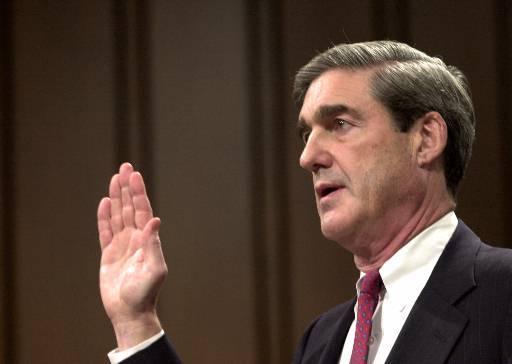
Photos: Associated Press
The 73-year-old special counsel is a stern taskmaster, setting an example for long hours, sustained focus and high standards that few of his colleagues have been able to match.
“Mueller went through five chiefs of staff in his first four years [as FBI director], and his special assistants rarely lasted more than a year,” Graff wrote. “It wasn’t that he was cruel to his staff -- just relentless and demanding.”
He had “the energy of the sun,” said one FBI manager.
James Comey, Mueller’s successor as FBI director and whose firing by Trump led to Mueller’s special-counsel appointment, offered a similar analogy. “He drives at such speed that he can burn up people around him,” Comey said. “Some people burn people up because they’re a--holes. Bob burns them up by sheer exertion.”
Added Lisa Monaco, one of Mueller’s chiefs of staff at the FBI: “He’s got one speed, and it’s pretty relentless.”
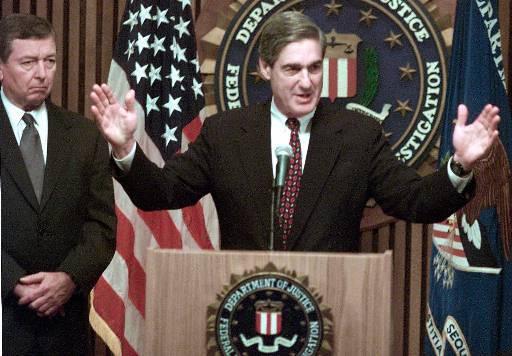
Mueller tried, with his wife’s help, to be conscious of the fact that not everyone on his FBI executive team could maintain his pace. But it didn’t come naturally to him. Wrote Graff:
When his wife, Ann, warned him that he was working his staff too hard, he called his then counsel Chuck Rosenberg. “How are you doing?” he asked when Rosenberg answered the phone. “Fine,” Rosenberg said. “What can I get you, boss?” “Nothing,” Mueller replied, the conversation over. He had checked in on his staff.
In one of the more memorable footnotes in “Threat Matrix,” a fellow government lawyer recalled how Mueller, early in his career as a federal prosecutor, attempted to build rapport with his staff by hosting summer barbecues from 8 p.m. to 11 p.m. The three hours set aside for the get-together was not a suggestion but a hard limit. Said the colleague with a chuckle: “At five minutes to eleven he’d start flipping the lights to get people out of his house.”
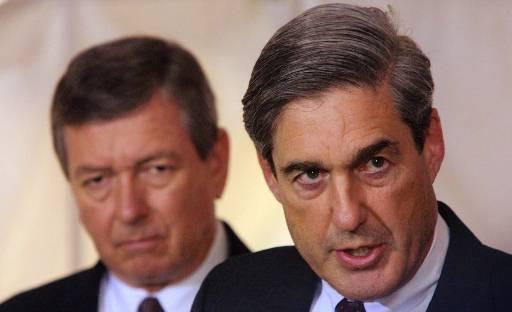
Mueller doesn’t go generalities. He wants evidence nailed down before it’s brought to him. Graff wrote the following about intelligence briefings in the early post-9/11 days:
In briefings and meetings, agents and briefers would say things like “Such and such is linked to al-Qaeda” or “is associated with terrorists. Mueller would fume: “I don’t know what linked means. If that’s all you’ve got, don’t brief me.” He wanted specifics, definitive statements, and hard facts. “There was a level of answer that was acceptable within the Bureau that didn’t provide the level of detail Bob Mueller required -- and objectively probably wasn’t satisfactory either,” explains his friend and counselor Lee Rawls.
Mueller wanted, as he put it himself, “ground truth.” That is, “what’s really happening, not just what people want to tell you.” He said: “The mistakes I’ve made are when I haven’t gotten to the bottom of it, dug really deep down, asked all the questions.”
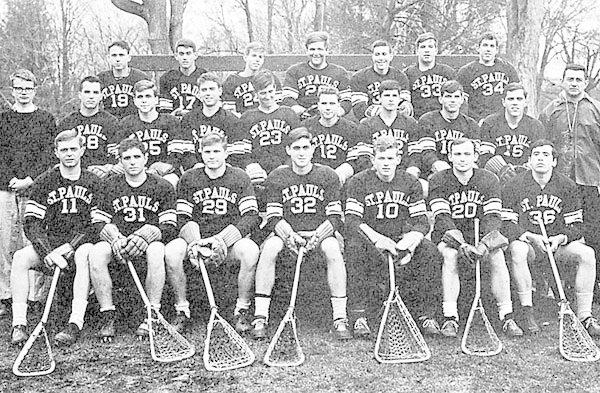
As a boy, Mueller attended New Hampshire’s prestigious St. Paul’s boarding school. (John Kerry, who would become a U.S. senator and secretary of State, was a classmate.) The school “focused on manliness and Christianity” -- and Mueller, by all accounts, took both subjects seriously.
Said a friend: “Bob’s the best of the old prep-school tradition. He stands for service, integrity, and has the confidence to never bend. He doesn’t do anything for himself.”
Mueller went on to Princeton University, where he excelled, and then enlisted in the U.S. Marine Corps. He led a combat platoon in Vietnam, earning a Bronze Star after evacuating wounded soldiers from a battle scene “with complete disregard for his own safety.” He also earned a Purple Heart and two Navy Commendation Medals.
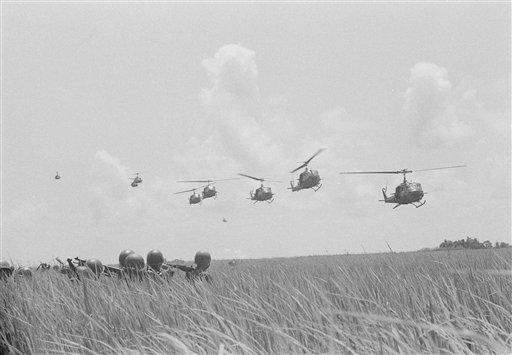
“The time in Vietnam,” Graff wrote, “was intensely formative for Mueller, forging his leadership skills literally under fire.”
Indeed, Mueller himself credits much of his success in life to his experience in the Marines.
“Your improvement,” he said, “comes from the ability to maximize the embodiment of a Marine.”
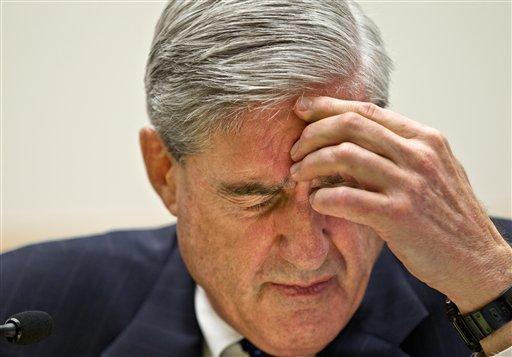
Mueller’s dedication to work is “unending,” but Graff wrote that his dedication to his wife matches it. Ann had two bouts with cancer during Mueller’s FBI directorship, “and he made every doctor’s appointment and monitored every checkup, every dose of chemotherapy.”
When asked about the importance of his wife and children, he responded, simply:
“Everything else pales in comparison.”
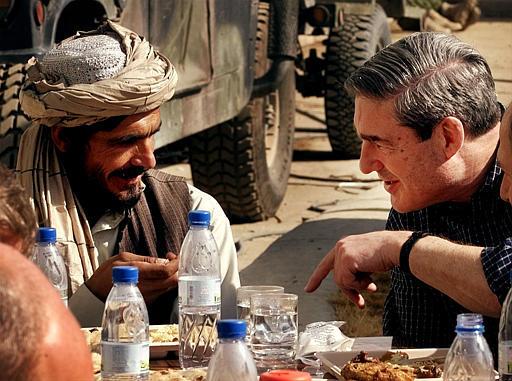
One of Mueller’s favorite books is Thomas Friedman’s “The World is Flat: A Brief History of the Twenty-first Century.” Graff says the 2005 book “influenced greatly [Mueller’s] thinking about the Bureau.”
Friedman argues, The Guardian pointed out in a review of the book, that globalization and technological change are “a greater threat to western economies than we realize.”
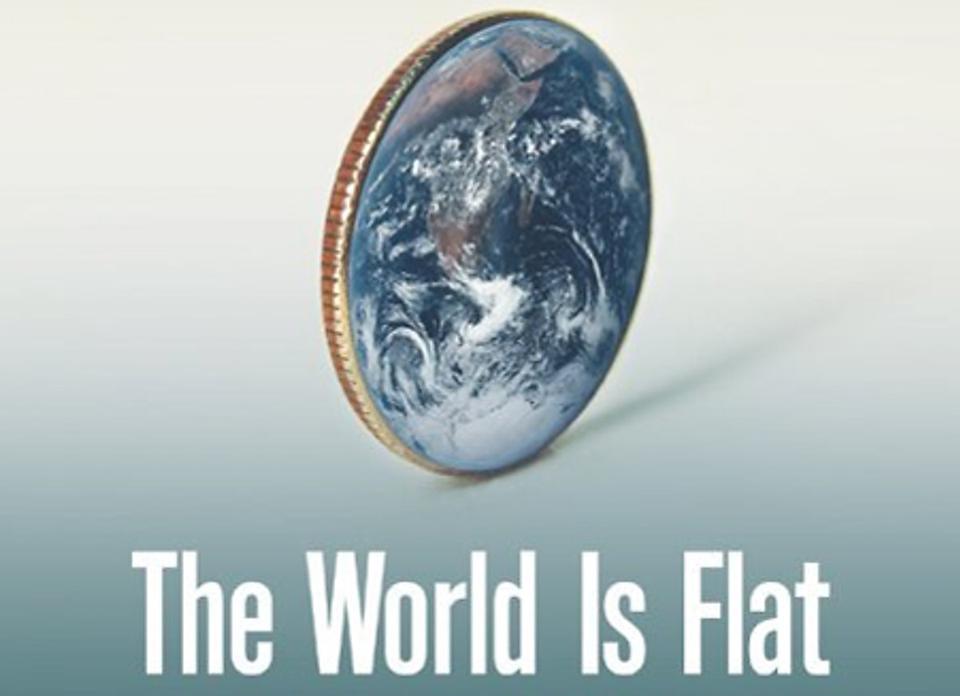
Many observers of the national political scene, both Trump critics and Trump supporters, believe Mueller’s investigation is going to come to a head in 2018.
What that will mean, for President Trump and for the country, no one knows -- not even Mueller. But this much is known: once Mueller determines the correct course of action, he will do everything in his power to see it through.
Said one FBI agent:
“The director respects you if you want to argue about which route to take up the hill, but he won’t argue over which hill is the right one to take.”
Mueller’s favorite description of his own management style comes from the movie “Crimson Tide”: “I’m here to protect democracy, not to practice it.”
-- Douglas Perry
http://www.oregonlive.com/trending/2018/01/how_robert_mueller_hunted_terr.html
Robert Mueller can’t avoid the spotlight, much as he might like to.
He is, after all, the special counsel investigating whether President Donald Trump’s 2016 election campaign colluded with the Russian government. The investigation is expected to reach its apex this year, with conclusions that likely will lead either to the president’s impeachment or his public exoneration.
While leaks are voluminous from both the White House and the congressional committees investigating Russian election interference, we don’t hear anything from Mueller.
But we do know a thing or two about how the decorated Vietnam War veteran and accomplished former federal prosecutor goes about his business. The best single source on the subject is Garrett M. Graff’s 2011 book “The Threat Matrix,” about the FBI’s hunt for terrorists after the Sept. 11, 2001, attacks. Mueller served as FBI director from 2001 to 2013.
We’ve collected here the most pertinent revelations from the book that show Mueller's motivations and how he’s probably conducting the special-counsel investigation.

Photos: Associated Press
The 73-year-old special counsel is a stern taskmaster, setting an example for long hours, sustained focus and high standards that few of his colleagues have been able to match.
“Mueller went through five chiefs of staff in his first four years [as FBI director], and his special assistants rarely lasted more than a year,” Graff wrote. “It wasn’t that he was cruel to his staff -- just relentless and demanding.”
He had “the energy of the sun,” said one FBI manager.
James Comey, Mueller’s successor as FBI director and whose firing by Trump led to Mueller’s special-counsel appointment, offered a similar analogy. “He drives at such speed that he can burn up people around him,” Comey said. “Some people burn people up because they’re a--holes. Bob burns them up by sheer exertion.”
Added Lisa Monaco, one of Mueller’s chiefs of staff at the FBI: “He’s got one speed, and it’s pretty relentless.”

Mueller tried, with his wife’s help, to be conscious of the fact that not everyone on his FBI executive team could maintain his pace. But it didn’t come naturally to him. Wrote Graff:
When his wife, Ann, warned him that he was working his staff too hard, he called his then counsel Chuck Rosenberg. “How are you doing?” he asked when Rosenberg answered the phone. “Fine,” Rosenberg said. “What can I get you, boss?” “Nothing,” Mueller replied, the conversation over. He had checked in on his staff.
In one of the more memorable footnotes in “Threat Matrix,” a fellow government lawyer recalled how Mueller, early in his career as a federal prosecutor, attempted to build rapport with his staff by hosting summer barbecues from 8 p.m. to 11 p.m. The three hours set aside for the get-together was not a suggestion but a hard limit. Said the colleague with a chuckle: “At five minutes to eleven he’d start flipping the lights to get people out of his house.”

Mueller doesn’t go generalities. He wants evidence nailed down before it’s brought to him. Graff wrote the following about intelligence briefings in the early post-9/11 days:
In briefings and meetings, agents and briefers would say things like “Such and such is linked to al-Qaeda” or “is associated with terrorists. Mueller would fume: “I don’t know what linked means. If that’s all you’ve got, don’t brief me.” He wanted specifics, definitive statements, and hard facts. “There was a level of answer that was acceptable within the Bureau that didn’t provide the level of detail Bob Mueller required -- and objectively probably wasn’t satisfactory either,” explains his friend and counselor Lee Rawls.
Mueller wanted, as he put it himself, “ground truth.” That is, “what’s really happening, not just what people want to tell you.” He said: “The mistakes I’ve made are when I haven’t gotten to the bottom of it, dug really deep down, asked all the questions.”

As a boy, Mueller attended New Hampshire’s prestigious St. Paul’s boarding school. (John Kerry, who would become a U.S. senator and secretary of State, was a classmate.) The school “focused on manliness and Christianity” -- and Mueller, by all accounts, took both subjects seriously.
Said a friend: “Bob’s the best of the old prep-school tradition. He stands for service, integrity, and has the confidence to never bend. He doesn’t do anything for himself.”
Mueller went on to Princeton University, where he excelled, and then enlisted in the U.S. Marine Corps. He led a combat platoon in Vietnam, earning a Bronze Star after evacuating wounded soldiers from a battle scene “with complete disregard for his own safety.” He also earned a Purple Heart and two Navy Commendation Medals.

“The time in Vietnam,” Graff wrote, “was intensely formative for Mueller, forging his leadership skills literally under fire.”
Indeed, Mueller himself credits much of his success in life to his experience in the Marines.
“Your improvement,” he said, “comes from the ability to maximize the embodiment of a Marine.”

Mueller’s dedication to work is “unending,” but Graff wrote that his dedication to his wife matches it. Ann had two bouts with cancer during Mueller’s FBI directorship, “and he made every doctor’s appointment and monitored every checkup, every dose of chemotherapy.”
When asked about the importance of his wife and children, he responded, simply:
“Everything else pales in comparison.”

One of Mueller’s favorite books is Thomas Friedman’s “The World is Flat: A Brief History of the Twenty-first Century.” Graff says the 2005 book “influenced greatly [Mueller’s] thinking about the Bureau.”
Friedman argues, The Guardian pointed out in a review of the book, that globalization and technological change are “a greater threat to western economies than we realize.”

Many observers of the national political scene, both Trump critics and Trump supporters, believe Mueller’s investigation is going to come to a head in 2018.
What that will mean, for President Trump and for the country, no one knows -- not even Mueller. But this much is known: once Mueller determines the correct course of action, he will do everything in his power to see it through.
Said one FBI agent:
“The director respects you if you want to argue about which route to take up the hill, but he won’t argue over which hill is the right one to take.”
Mueller’s favorite description of his own management style comes from the movie “Crimson Tide”: “I’m here to protect democracy, not to practice it.”
-- Douglas Perry
http://www.oregonlive.com/trending/2018/01/how_robert_mueller_hunted_terr.html



